It can be difficult to know if someone is properly qualified to provide you with the treatment that you need. This article will help guide you through what psychologist credentials are important and why they matter. It will also cover the important terms, some key differences, and different types of mental health professionals to help you check their respective credentials. Remember, if something doesn’t feel right about a therapist or counselor who says they’re registered, ask!
Contents
- 1 Psychologist
- 2 What Are Psychologist Credentials?
- 3 Most Common Psychologist Credentials
- 4 What are Different Types Of Psychologists?
- 5 Know The Different Types Of Mental Health Professionals
- 5.1 Licensed Professional Counselor (LPC)
- 5.2 Licensed Clinical Social Worker (LCSW)
- 5.3 Licensed Mental Health Counselor (LMHC)
- 5.4 Marriage and Family Therapist (MFT)
- 5.5 Addiction Counselor (CAC)
- 5.6 Licensed Marriage and Family Therapist (LMFT)
- 5.7 Educational Specialist (EdD)
- 5.8 Educational Psychologist (EdS)
- 5.9 Clinical Social Worker (LCSW)
- 5.10 Marriage and Family Therapist (MFT)
- 5.11 Mental Health Counselor (LPC)
- 5.12 Clinical Nurse Specialist (CNS)
- 5.13 Psychiatric Nurse (PMHNP)
- 5.14 Nurse Practitioner
- 6 Know The Terms
- 7 Know The Difference
- 8 What If You Find Discrepancies?
- 9 Conclusion
Psychologist
A psychologist has earned a doctoral degree in psychology (Ph.D. or PsyD). They have completed an accredited internship, undergone rigorous training, and passed a comprehensive exam. To be licensed as a psychologist, they must have a license from the state in which they practice.
What Does It Mean If You Are a Psychologist?
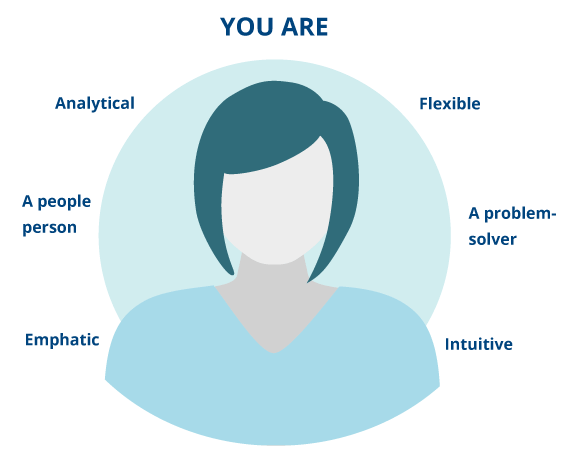
Being a psychologist means that you have at least a doctorate in psychology and are licensed to do therapy. There is no state board for psychologists, so it can be difficult to know if someone is qualified. However, some organizations give credentials that let you know the therapist’s level of training. These include the American Board of Professional Psychology, the National Register of Health Service Providers in Psychology, and more.
What Are Psychologist Credentials?
Psychologist credentials are the qualifications that a mental health professional must receive to be able to practice. These will vary depending on where you live, but there are some general guidelines for what types of degrees and licenses should look like in your area.
NOTE: This is not an exhaustive list or all-inclusive by any means! Rather, it’s designed to give you a snapshot of the most common credentials.
Why Do We Need To Check Psychologist Credentials?
For those who have been traumatized or abused, a therapist is often one of the first people that you feel safe with and open up to. It’s important then to make sure your counselor has proper credentials before you begin working together. There are some psychologists out there who don’t have degrees in psychology at all, which can lead to treatments that are harmful and unhelpful.
Most Common Psychologist Credentials
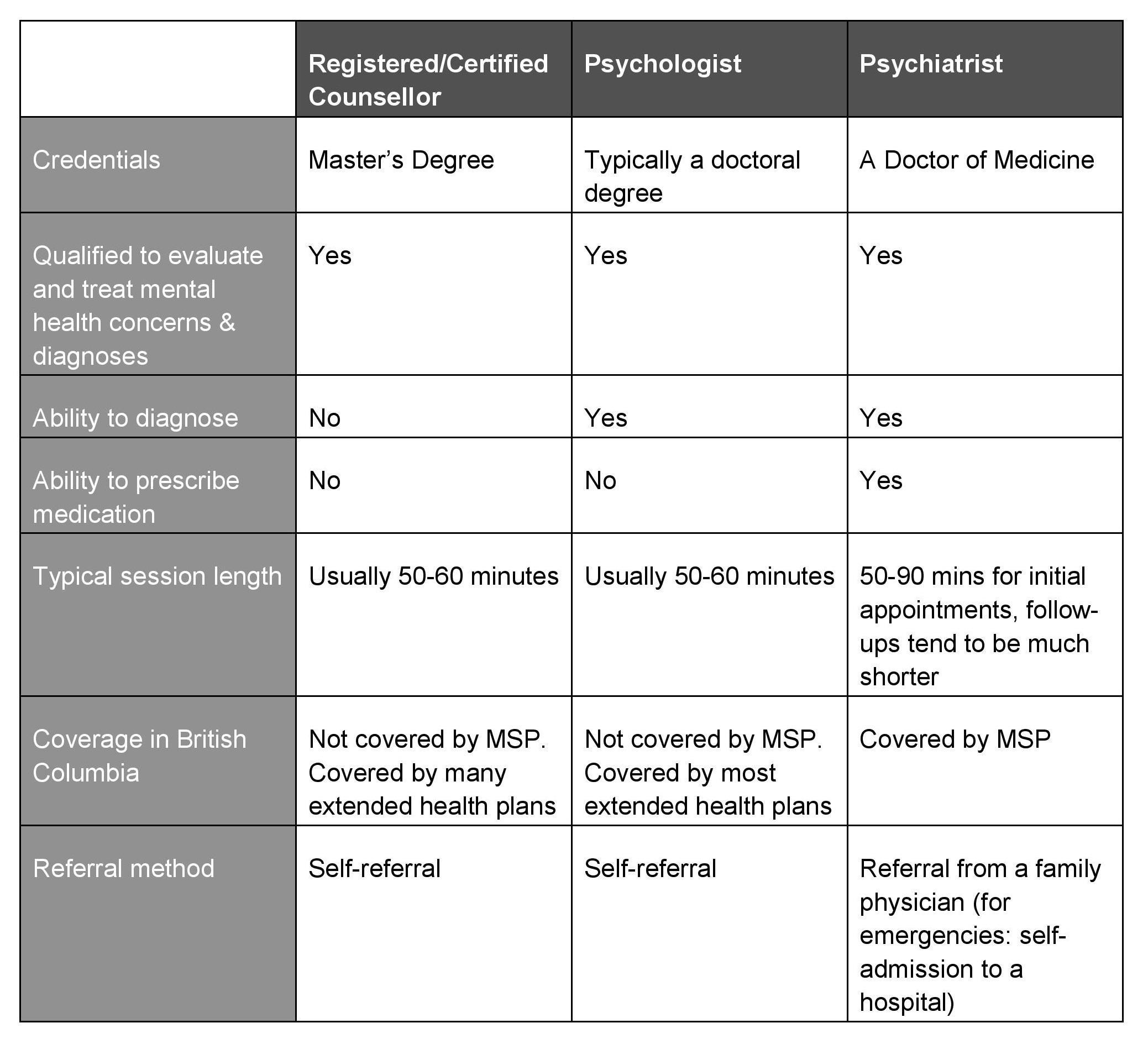
There are many different types of psychologist credentials, but some of the most common ones are:
Registered Psychotherapist
This is the first level credential and usually indicates that someone has completed an undergraduate degree in psychology and has started working towards their license. They may also have additional training in specific areas, such as addiction or trauma.
CAC
A certified addictions counselor generally has a master’s or doctoral degree in psychology with an emphasis on addictions. They may have taken additional training and passed a certification test to receive this credential.
MA, MS, MEd/AEDS, MC
If someone has earned one of these degrees they likely received their undergraduate education in psychology and then went on to get their graduate degree. This usually qualifies them to work as a therapist, although they may still need to gain licensure to practice independently.
LPC/LCPC/LPCC/LMHC
A licensed professional counselor is a general term that can refer to someone with any of the following credentials:
- Professional Clinical Counselor
- Clinical Pastoral Counselor
- Clinical Counselor
- Mental Health Counselor
LAC, NCC, LMFT, LCSW
A licensed addictions counselor has a master’s or doctoral degree in either counseling or psychology with an emphasis on addiction. They may have also completed the necessary training to receive their license and passed a certification test. This is similar to what someone might receive with a CAC, but the focus here is more on addiction treatment.
EMDR
Eye Movement Desensitization and Reprocessing therapy is an intensive type of psychotherapy that has been developed to treat people who have experienced traumatic events or abuse in their lives. To become trained in this method you must attend specialized training sessions and complete a certification process.
EdD, PsyD, PhD
Someone with one of these doctoral degrees has completed their education in psychology and is often able to practice independently as a therapist. They may still need licensure though depending on where they live and what type of treatment they wish to provide (for example: prescribing medication).
MD, LP, ABP
An MD is a medical degree and allows someone to practice medicine. A licensed professional counselor (LPC) is usually the next step up from this credential in terms of therapist credentials. The initials following their names may vary but could include:
- Psychologist – PhD or PsyD
- Mental Health Counselor – MC, MA, MS, MEd
- Marriage and Family Therapist – LMFT
- Licensed Social Worker – LCSW
- Certified Alcohol and Drug Counselor – CAC or CADC
What are Different Types Of Psychologists?
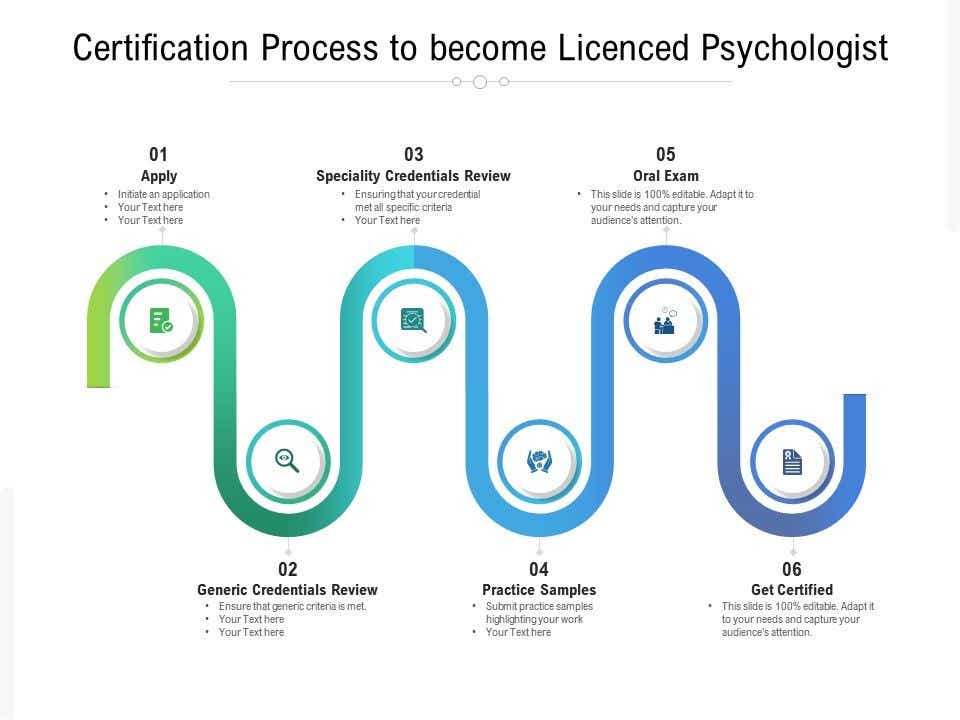
There are many different types of psychologists. The most common type is the clinical psychologist.
Clinical Psychologist (Ph.D.)
A clinical psychologist has earned a doctoral degree in psychology (PsyD or Ph.D.). They are trained to do therapy and psychological testing. They have completed an accredited internship, undergone rigorous training, and passed a comprehensive exam. To be licensed as a clinical psychologist, they must have a license from the state in which they practice.
Doctor of Psychology (PsyD)
A doctor of psychology degree is typically earned after four years of graduate study and results in the awarding of a PsyD. Some universities also offer Ph.D. degrees in clinical or counseling psychology, which take five to seven additional years beyond the bachelor’s degree to complete. Clinical psychologists who hold doctoral degrees are often more qualified and may have greater success obtaining a license to practice.
Counseling Psychologists
Counseling psychologists have a doctoral degree in psychology, usually an EdD or Ph.D. They are trained to do therapy and psychological testing.
School Psychologists
School psychologists also have doctorates but they focus on the mental health of children and adolescents in school settings (e.g., working with students who might be having problems).
Industrial-Organizational Psychologists
Industrial-organizational psychologists focus on the workplace and how people can be most successful in their jobs. They have doctorates, sometimes an EdD or Ph.D., but unlike clinical and counseling psychologists they do not typically provide therapy to patients/clients one-on-one (although this is still possible).
Know The Different Types Of Mental Health Professionals
Licensed Professional Counselor (LPC)
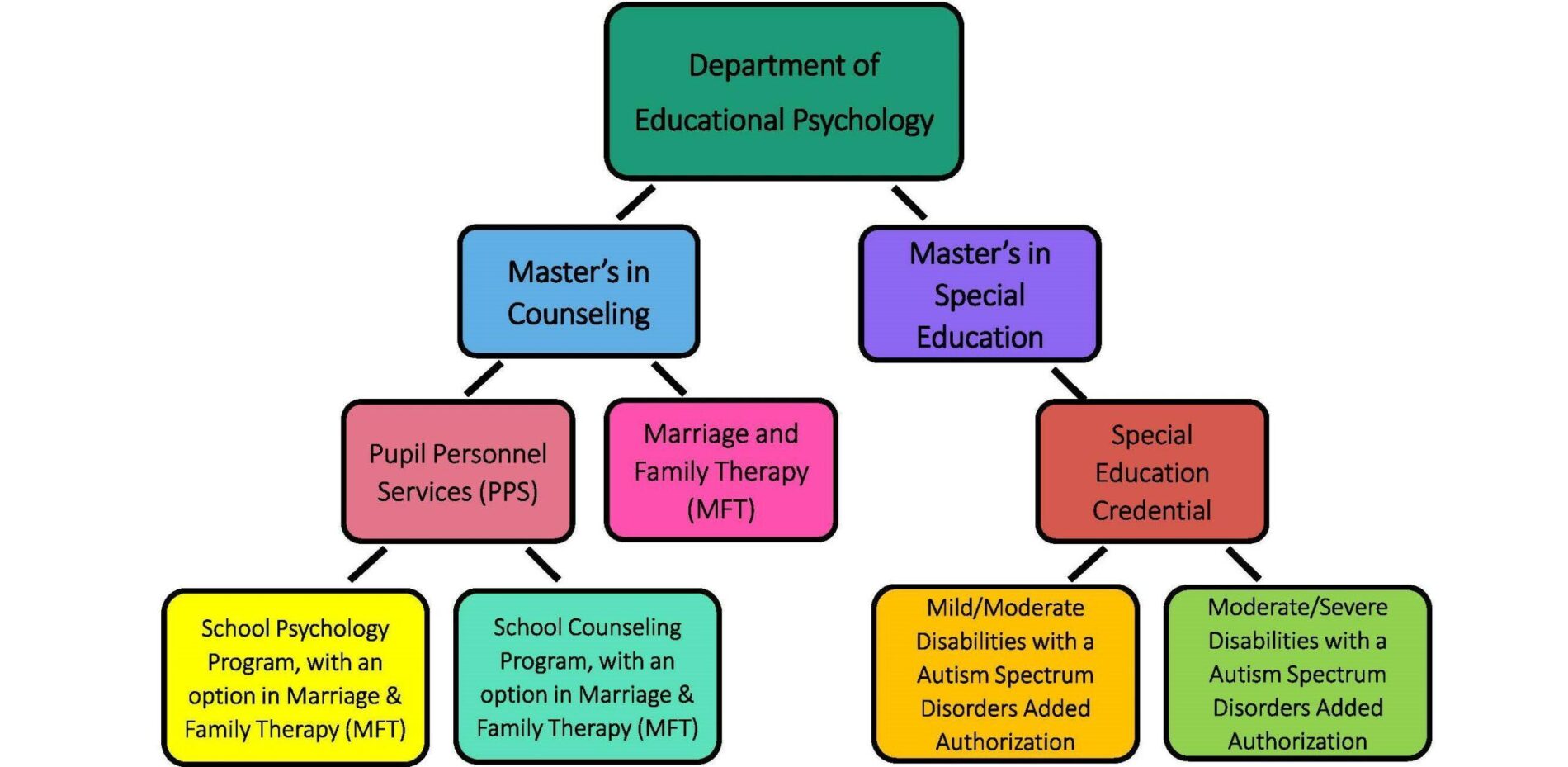
A licensed professional counselor is someone who has a master’s degree in counseling or a related field and who has been licensed by their state to provide therapy to patients/clients. LPCs can work in different settings, such as private practice, hospitals, or clinics.
Licensed Clinical Social Worker (LCSW)
A licensed clinical social worker is someone who has a master’s degree in social work and who has been licensed by their state to provide therapy to patients/clients. LCSWs can work in different settings, such as private practice, hospitals, or clinics.
Licensed Mental Health Counselor (LMHC)
A licensed mental health counselor is someone who has a master’s degree in counseling or a related field and who has been licensed by their state to provide therapy to patients/clients. LMHCs can work in different settings, such as private practice, hospitals, or clinics.
Marriage and Family Therapist (MFT)
A marriage and family therapist is someone who has a master’s degree in marriage and family therapy or a related field and who has been licensed by their state to provide therapy to patients/clients. MFTs can work in different settings, such as private practice, hospitals, or clinics.
Addiction Counselor (CAC)
A certified addiction counselor, or CAC, has been trained in substance abuse counseling or addictions treatment. They are typically required by their state to complete several hundred hours of supervised training as well as meet other specific requirements.
Licensed Marriage and Family Therapist (LMFT)
A licensed marriage and family therapist is someone who has a master’s degree in marriage and family therapy or a related field. They have been licensed by their state to provide therapy to patients/clients. LMFTs can work in different settings, such as private practice, hospitals, or clinics.
Educational Specialist (EdD)
An educational specialist degree typically takes four to six years of postgraduate study and results in the awarding of a Doctorate (Ph.D., EdD). A master’s degree usually requires two additional years beyond the bachelor’s degree; however, some universities offer accelerated programs that allow students to earn both a master’s and specialist degree in five years.
Educational Psychologist (EdS)
An educational psychologist has earned a master’s degree in school psychology and typically works with children who are struggling for any number of reasons, whether it be academic or personal problems. They often work alongside teachers, parents, social workers, and other school personnel to help students overcome these problems.
Clinical Social Worker (LCSW)
A clinical social worker has earned a master’s degree in social work and typically works with patients/clients who are struggling for any number of reasons, whether it be psychological or personal problems. They often work alongside doctors, nurses, psychiatrists, and other medical personnel to help patients/clients overcome these problems.
Marriage and Family Therapist (MFT)
A marriage and family therapist is someone who has a master’s degree in marriage and family therapy or a related field. They have been licensed by their state to provide therapy to patients/clients. MFTs can work in different settings, such as private practice, hospitals, or clinics.
Mental Health Counselor (LPC)
A mental health counselor typically has a master’s degree in counseling or psychology and has a license to provide therapy to patients/clients. They often work with people who are struggling with depression, anxiety, addiction, and other mental health issues.
Clinical Nurse Specialist (CNS)
A clinical nurse specialist has an MSN and typically works in a hospital setting, providing care to patients who are recovering from surgery, have a chronic illness, or are experiencing emotional problems. CNSs often work alongside psychiatrists, social workers, and other medical personnel.
Psychiatric Nurse (PMHNP)
A psychiatric nurse has earned an MSN and typically works in a hospital setting, providing care to patients who are experiencing mental health problems. PMHNPs often work alongside psychiatrists, social workers, and other medical personnel.
Nurse Practitioner
A nurse practitioner has a degree in either a master’s or doctoral degree in nursing and has a license to provide health care services such as diagnosing and treating illnesses, prescribing medication, and counseling patients. Nurse practitioners often work alongside doctors in a hospital setting or private practice.
Know The Terms
Psychological Testing
Psychological tests help assess a person’s mental health concerns, abilities, personality traits, or other characteristics. They can be useful to diagnose a mental health condition, to measure the severity of a mental health condition, or to help guide therapy. There are many different types of psychological tests and professionals give them in different settings (e.g., in person, over the phone, online).
EMDR
EMDR is a type of therapy that is helpful for people who have experienced trauma. The therapist will help the patient to focus on memories or thoughts related to the traumatic event and then move their eyes back and forth while they are thinking about these things. This seems to help the brain process the information differently and can help reduce the symptoms of PTSD.
Know The Difference
Difference Between a Clinical Psychologist vs. Other Types of Therapists
There are many different types of therapists—and there is no one-size-fits-all therapy that works for everyone. While clinical psychologists have the training to do therapy, other types of therapists may not. It’s important to understand what your therapist is qualified for and how they can help you with your specific needs.
Difference Between a Psychologist and a Psychiatrist
Psychologists and psychiatrists are both doctors, but they have different training. Psychiatrists are medical doctors who specialize in mental health. They can prescribe medication to patients.
Psychologists are not medical doctors, but they do have doctoral degrees in psychology. They usually provide therapy to patients/clients one-on-one and can do psychological testing.
Difference Between a Counseling Psychologist and a Clinical or a School Psychologist
This can be confusing because all three types of psychologists have doctoral degrees in psychology, but they do different things:
Counseling Psychology
Counseling psychologists help people with mental health difficulties, such as depression or anxiety. They also help people deal with everyday problems, such as relationships or stress. Counseling psychologists typically do not provide therapy to patients/clients one-on-one.
Clinical Psychology
Clinical psychologists help people who have mental health difficulties and also provide psychological testing. Also, they often work in hospitals, clinics, or private practice.
School Psychology
School psychologists help children and adolescents who might be having issues in school, such as behavioral or learning problems. Apart from this, they provide assessments for this purpose but do not typically treat the child/adolescent one-on-one.

- Psychiatrists are medical doctors who have earned an MD and specialize in diagnosing and treating mental health problems. They can prescribe medication and often work in a hospital setting.
- Psychologists are therapists who have a doctoral degree in psychology (PsyD or Ph.D.) and has a license to provide therapy to patients/clients.
- Social workers are therapists who have a master’s degree in social work and have a license to provide therapy to patients/clients. They often work in a variety of settings, such as private practice, hospitals, or clinics.
What If You Find Discrepancies?
While it’s important to check the credentials of a potential therapist, sometimes some discrepancies may not be intentional on behalf of the mental health professional.
In this case, you should ask questions if something feels off about what they’re telling you. If it’s a mistake, they should be able to explain what happened and how they resolved the issue.
Who Can Prescribe Medication?
Only medical doctors, such as psychiatrists, can prescribe medication to patients for mental health concerns or illnesses. A few states allow certain other types of providers (e.g., nurse practitioners) to provide limited prescriptions related to psychiatric medications without a psychiatrist’s involvement.
NOTE: If you find any discrepancies in someone’s psychologist credentials (e.g., their degree is not from an accredited university), you should report this to the appropriate board or licensing agency. You can find more information on how to do this at the American Psychological Association website.
Conclusion
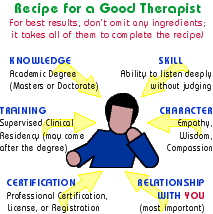
If you are considering seeing a psychologist, it is important to check their credentials and make sure that they hold licenses in your state. Therefore, it’s always a good idea to check someone’s credentials before starting therapy or counseling with them. This will help ensure that you get the best care possible and that the mental health professional you choose has a license to practice in your state.
For more information, please contact MantraCare. Online therapists are increasingly important in today’s world because they provide a convenient and accessible way for people to receive mental health support and treatment. Visit MantraCare If you are searching for “therapist near me”. Book a trial Online therapy session


